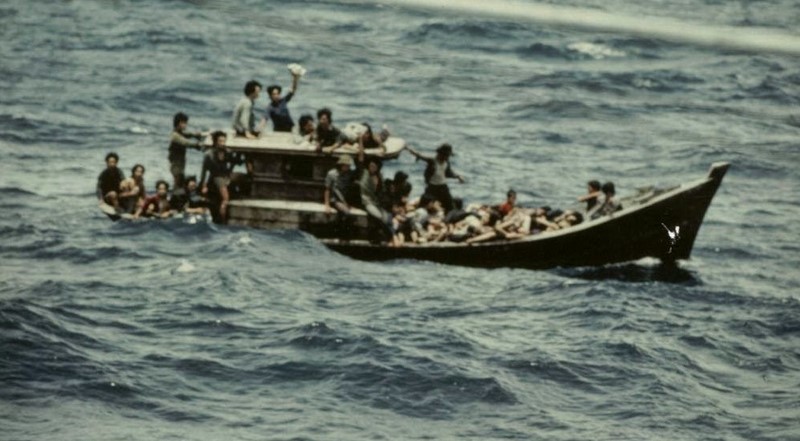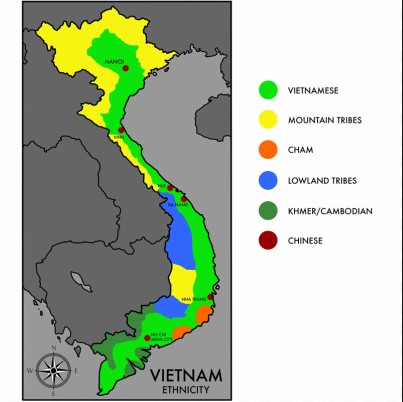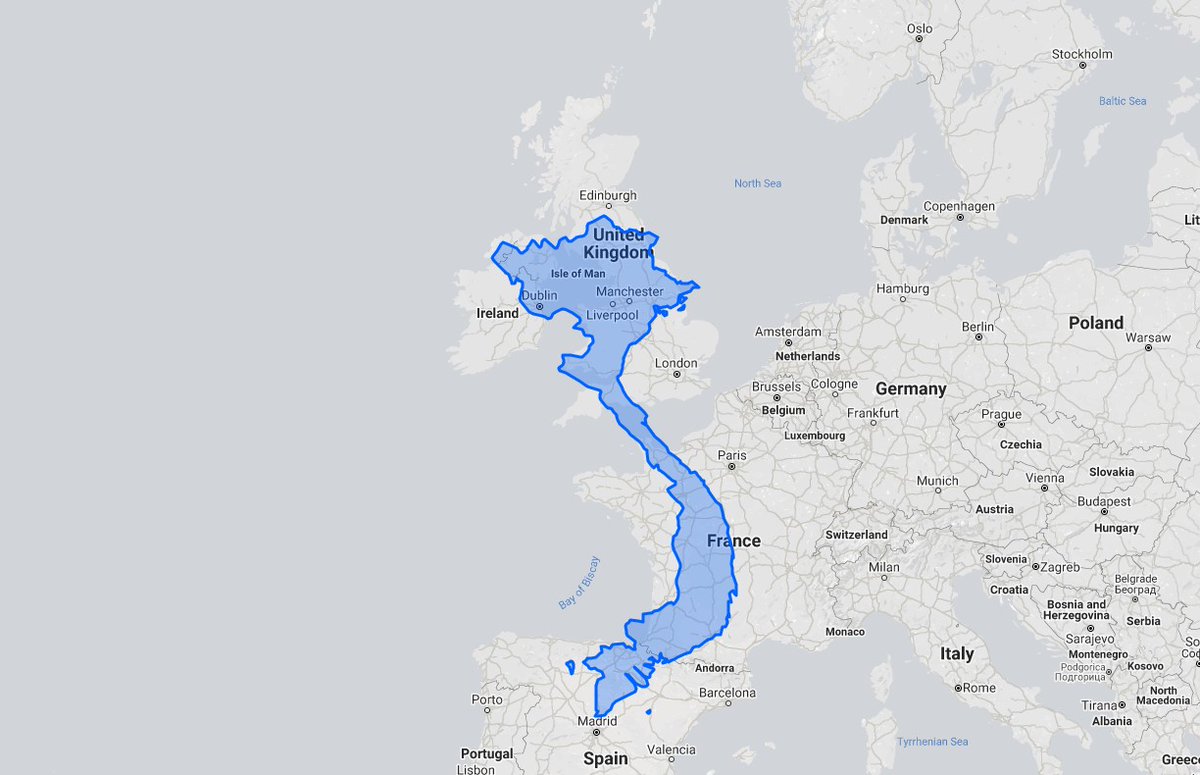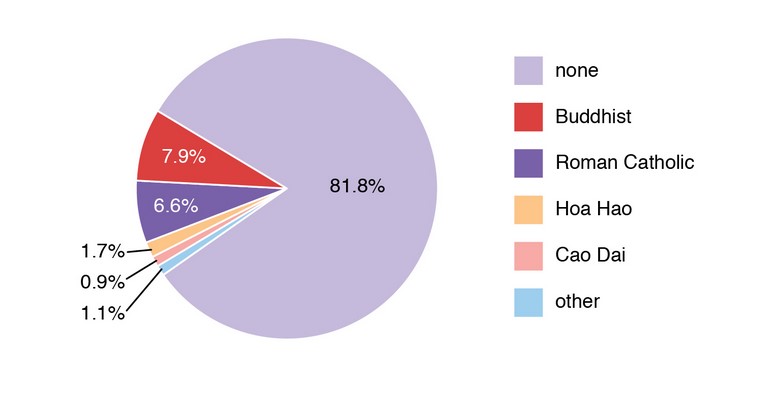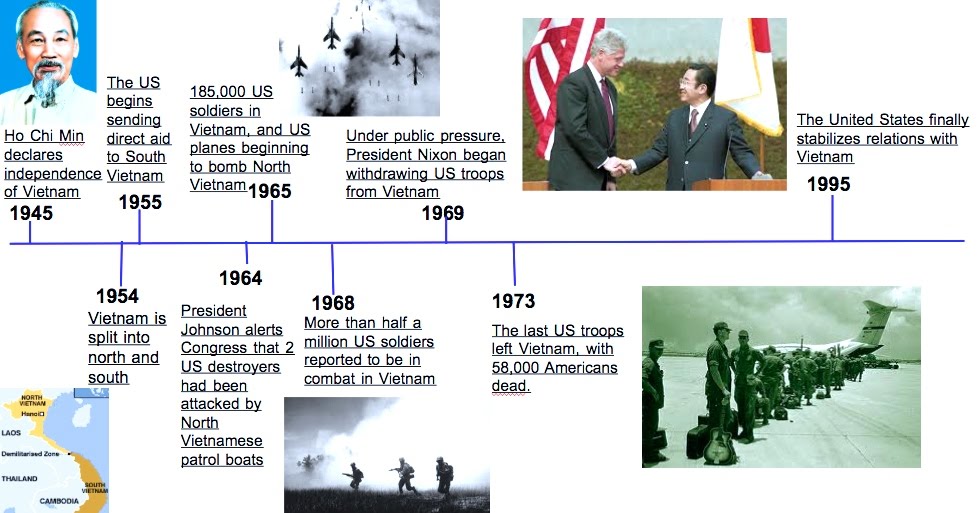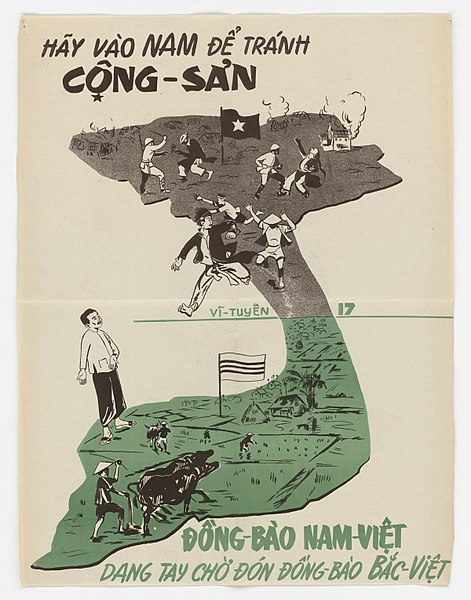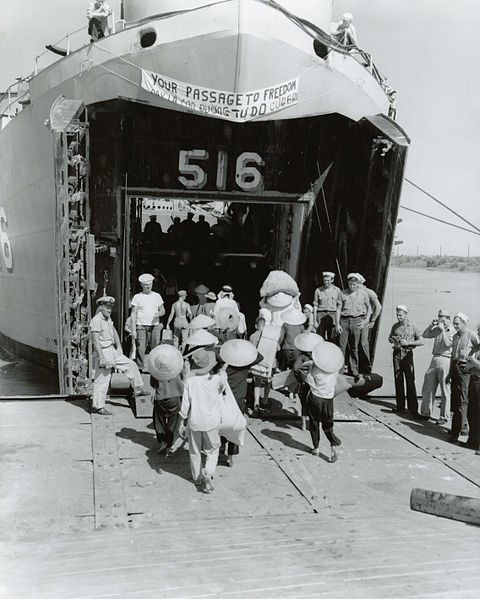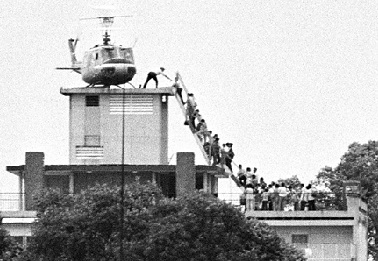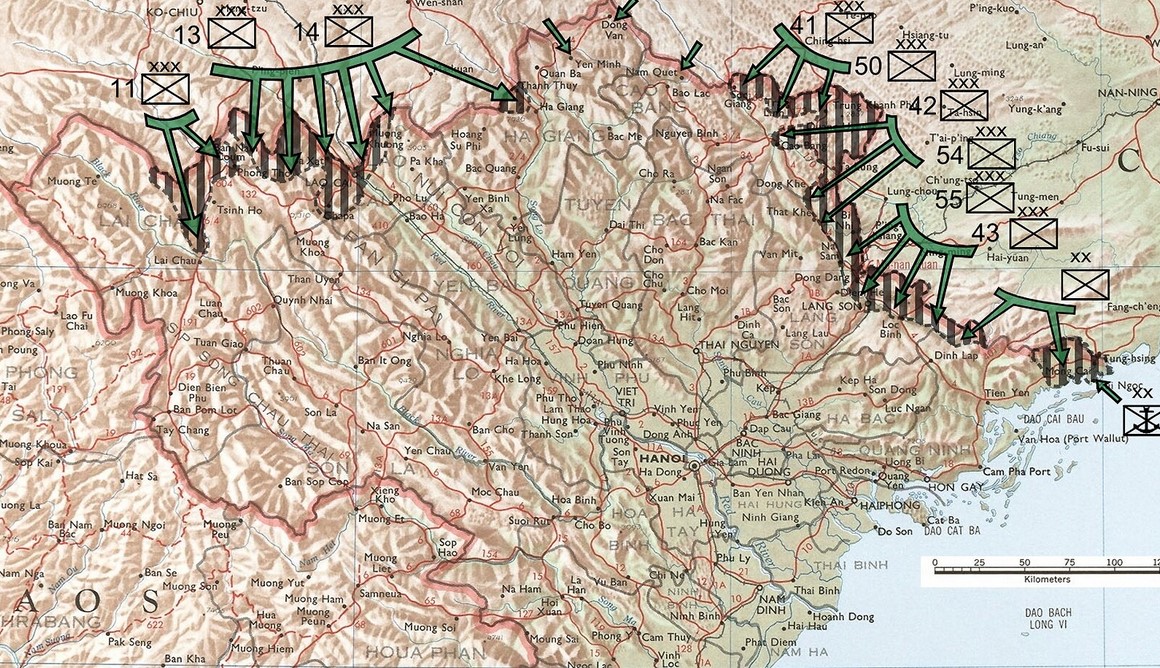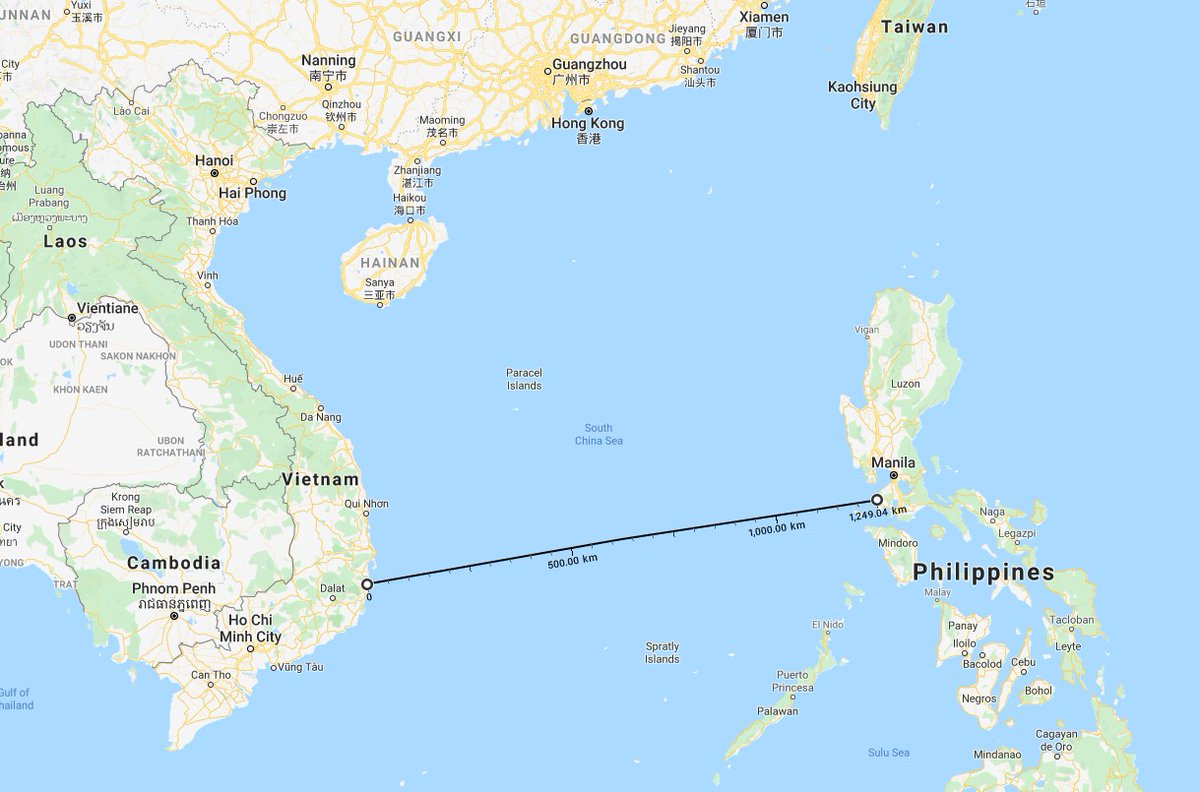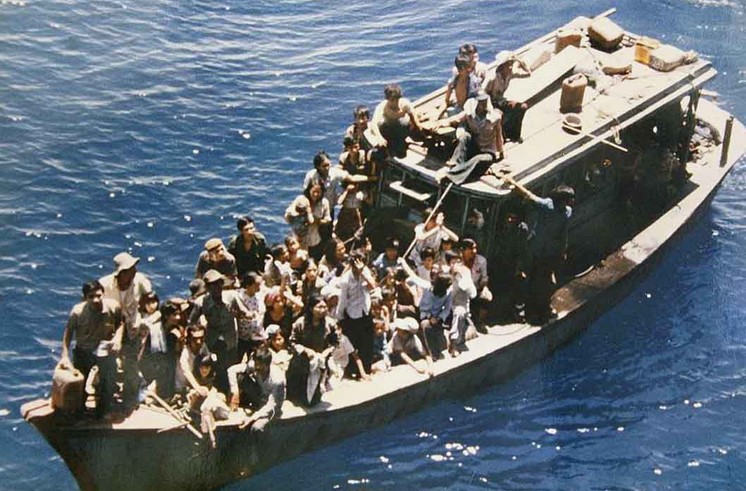A thread on the asylum seekers crossing the channel and why I stand on the side of Ben and Jerry& #39;s on this, not that of Nigel Farage and Priti Patel.
Some of you who know me outside of twitter may already be aware that my wife was once a refugee.
Some of you who know me outside of twitter may already be aware that my wife was once a refugee.
Vietnam is more diverse culturally than many people realise.
There are significant minorities in some areas, particularly the Hoa - ethnic Chinese who lived in the North of the country.
There are significant minorities in some areas, particularly the Hoa - ethnic Chinese who lived in the North of the country.
The diversity of the country is perhaps not so surprising when you consider the size of the country. Overlaid on Europe, it stretches nearly from Edinburgh to Madrid and has large areas of mountains in the north and the middle.
Another aspect of the diversity of Vietnam is it& #39;s religion. Although most people associate it with news picture of Buddhist monks in saffron robes, but under communism, most people (officially) professed no religion and Roman Catholics were nearly as large a group as Buddhists.
The arrival of Jesuits in the early 17th century established Catholicism within the local populations in both regions of Đàng Ngoài and Đàng Trong. These missionaries were mainly Italians, Portuguese, and Japanese. Today, those in the country number 6.3 million.
Anyway - fast forward to the Vietnam war. I& #39;m not going to try and re-tell the story of it that has been written many times before, but there are a few key points.
Like many 20th century wars, it beginnings were glowing embers left in the ashes of colonialism.
Like many 20th century wars, it beginnings were glowing embers left in the ashes of colonialism.
It was a long, costly and divisive conflict that pitted the communist government of North Vietnam against South Vietnam and its principal ally, the United States. This civil war was intensified by the ongoing Cold War and led to over 3 million deaths. https://www.history.com/topics/vietnam-war/vietnam-war-history">https://www.history.com/topics/vi...
One key event, before the official war was Operation Passage to Freedom, where in 1954–55, the US Navy assisted in transporting 310,000 Vietnamese civilians, soldiers and non-Vietnamese members of the French Army from North to South Vietnam https://www.navytimes.com/news/your-navy/2019/08/15/cias-black-warfare-and-the-navys-operation-passage-to-freedom/">https://www.navytimes.com/news/your...
In the wake of the French defeat at the Battle of Dien Bien Phu, the Geneva Accords of 1954 decided the fate of French Indochina after eight years of war between French Union forces and the Viet Minh, which fought Vietnamese independence.
The accords resulted in the partition of Vietnam at the 17th parallel north, with Ho Chi Minh& #39;s communist Viet Minh in control of the north and the French-backed State of Vietnam in the south.
(Irrelevant fact - Ho Chi Minh was once a pastry chef in London)
(Irrelevant fact - Ho Chi Minh was once a pastry chef in London)
The agreements allowed a 300 day grace period, ending on May 18, 1955, in which people could move freely between the two Vietnams before the border was sealed. The partition was meant to be temporary, pending elections in 1956 to reunify the country under a national government.
For the US, the migration was a public relations coup, generating wide coverage of the flight of Vietnamese from the perceived oppression of communism to the "free world" in the south.
The period was marked by a CIA backed propaganda campaign on behalf of South Vietnam& #39;s Roman Catholic Prime Minister Ngo Dinh Diem. The campaign exhorted Catholics to flee impending religious persecution under communism, and around 60% of the north& #39;s 1 million Catholics obliged.
The Vietnam war ended with the fall of of Saigon on 30 April 1975 - but the end of war in a country is a very different thing from the end of conflict in a country.
It had been a war in French Indochina, not just in Vietnam.
The combination of economic sanctions, the legacy of destruction left from the war, policies of the Vietnamese government, and further conflicts with neighbouring countries caused an international humanitarian crisis.
The combination of economic sanctions, the legacy of destruction left from the war, policies of the Vietnamese government, and further conflicts with neighbouring countries caused an international humanitarian crisis.
Various factors contributed to ongoing hardship in the country, including economic hardship & wars among Vietnam, China, & Cambodia. In 1979, China invaded Vietnam because Vietnam had invaded Cambodia, whose rulers were backed by China.
https://www.warhistoryonline.com/instant-articles/china-vs-vietnam-27-m.html">https://www.warhistoryonline.com/instant-a...
https://www.warhistoryonline.com/instant-articles/china-vs-vietnam-27-m.html">https://www.warhistoryonline.com/instant-a...
In addition, up to 300,000 people, especially those associated with the former government and military of South Vietnam, were sent to re-education camps, where many endured torture, starvation, and disease while being forced to perform hard labour.
https://blogs.baruch.cuny.edu/womenwriters/?p=568">https://blogs.baruch.cuny.edu/womenwrit...
https://blogs.baruch.cuny.edu/womenwriters/?p=568">https://blogs.baruch.cuny.edu/womenwrit...
Plenty of groups had a harder time than the general population. Catholics for instance were by the nature of their religion associated with French colonisers.
The (ethnically Chinese) Hoa in the north were pretty much driven out of the country. Many minorities felt under threat.
The (ethnically Chinese) Hoa in the north were pretty much driven out of the country. Many minorities felt under threat.
The first people who let the country did so officially. The Vietnamese government and its officials profited from the outflow of refugees, especially the often well-to-do Hoa.
The price for obtaining exit permits, documentation, and a boat or ship, often derelict, to leave Vietnam was reported to be the equivalent of $3,000 for adults and half that for children. These payments were often made in the form of gold bars.
For officials, in the country it was seeing the back of groups that they didn& #39;t much like and making money out of the process.
Of course, most of the country were not part of the wealthy middle class and poorer Vietnamese left secretly without documentation & in flimsy boats.
Of course, most of the country were not part of the wealthy middle class and poorer Vietnamese left secretly without documentation & in flimsy boats.
The real exodus began in September 1978. The vessel Southern Cross unloaded 1,200 refugees on an uninhabited Indonesian island. which enraged the Indonesia government, though they were pacified by the assurances of Western countries that they would resettle the refugees.
Anyway - lets get back to the main story. My wife& #39;s father was born to a Roman Catholic family in Hà Tĩnh in the 1920s and never went to school. He worked as a fisherman - a very common occupation in a country with such an extensive coastline.
He married and had a large family - that is what people did in a country with high infant mortality and no pensions or other forms of social security.
He had 10 children, 2 of whom passed away (one through drowning, one through illness) before my wife was born.
He had 10 children, 2 of whom passed away (one through drowning, one through illness) before my wife was born.
The whole family lived aboard his fishing boat, with the older children going to the market during the day to sell the most recent catch.
By any contemporary Western standards it was a hard life, but they got by. They didn& #39;t try to leave the country.
By any contemporary Western standards it was a hard life, but they got by. They didn& #39;t try to leave the country.
As I& #39;ve described above, that all changed with the fall of Saigon. Like many others in his situation he started to think about whether it was possible to leave the country with his wife, family, some of his other relatives and a few friends.
This isn& #39;t a decision that he& #39;d have taken lightly. His youngest child was about one year old at this time. He knew that wherever he went he wouldn& #39;t speak the language and would struggle to fit in.
He& #39;d be leaving behind the way of life he& #39;d known, along with close friends and many other family members, possibly never to see them again.
Then there were the dangers of the journey itself. As a fisherman, he was more aware than most of the dangers of the sea. He knew that his boat was only suitable for using in coastal waters, and had none of the safety equipment that we might expect on a boat today.
There was no life rafts, no radio, no gps, no electronic navigation aids.
Added to that, the boat wasn& #39;t designed to hold that many people, so living conditions on it would be very cramped for the duration of the journey.
Added to that, the boat wasn& #39;t designed to hold that many people, so living conditions on it would be very cramped for the duration of the journey.
They had to acquire fuel on the black market for such a long journey and most of the planning would have taken place without telling his own children. Just one careless word could scupper the plans.
Whatever happened, it would be a dangerous journey. According to the United Nations High Commission for Refugees, between 200,000 and 400,000 Vietnamese boat people died at sea.
Because people were fleeing with all their belongings they were a target for pirates from Thailand and China. Many boats got ransacked by pirates multiple times. Women were raped. People who tried to conceal valuables could be killed.
Think about it for a bit - how bad the situation has to be to make the journey having weighed up all these dangers. Not just to make the journey alone, but to take your whole family including young children along at the same time. To abandon the only way of life you knew.
But he still did it. Under the cover of night he sneaked out of the estuary. Past guards patrolling the river mouth, past coastal naval patrols and out into open waters.
With only a simple amp and compass they headed out into the deep and treacherous waters of the South China Sea, far further from land than the boat had ever been before, a journey of over 1,200km with the hope of eventually reaching the Philippines.
Some boats were lucky and were picked up by passing freighters early in the journey. Others less lucky were hit by bigger ships who either failed to see them or were unable to stop in time.
Many more perished in storms, engines broke, overloaded boats leaked, or just got lost.
Many more perished in storms, engines broke, overloaded boats leaked, or just got lost.
Once they had escaped Vietnam and reached land though, that was far from the end of their journey. The Philippines had long been a welcomer of refugees, but in this instance it was on the condition that most would be re-settled elsewhere. https://www.unhcr.org/ph/11886-9wavesrefugees.html">https://www.unhcr.org/ph/11886-...
So they were put in a refugee camp with many other families who had arrived in a similar circumstances. While there they make applications to be accepted by a third country and began the long wait.
The oldest daughter had already escaped to Australia previously with her husband, so they decided that would be their ideal destination. Australia was chosen over America by her sister because they had come to distrust the Americans during the war and hadn& #39;t met any Australians.
The kids spent three years growing up in the refugee camp - my wife arrived there at age 3 and remembers chasing pigs (that people were rearing to eat) with her sisters.
Eventually the long awaited visas came through and 3 years after fleeing Vietnam the family got ready for the first plane journey of their lives and headed for a new life in Sydney, Australia.
But that& #39;s not really the end of the story - they arrived there with no knowledge of the language or means of support. Initially they were housed in a hostel before the Australian government helped them to find more permanent accommodation.
The adults were given classes in English, but some struggled as they were past the normal age for learning and had never known how to read our write in any language.
The children fared better, but only up to a point.
The children fared better, but only up to a point.
Australia was very used to taking in migrants. It was a country built in immigration. It was not however used to taking refugees - people who needed help and couldn& #39;t just build a new life under their own steam.
Sydney was a city still expanding and the newest arrivals ended up on wherever the outskirts were at that time, while those who settled before them moved in towards the centre. Thus the Vietnamese and Lebanese ended up shoulder to shoulder, replacing Greeks and Italians.
Many had difficulty adjusting. The new life was so different to what they had known. Children adapted faster and had less knowledge of the trauma that had led to the huge move. Many parents who once had successful careers struggled to find themselves though.
This led to a big generational divide. Children picked up English rapidly and only had a limited understanding of Vietnamese. They related better to their peers than to the adult family members and began to see their friends as close than family.
Gangs formed and drew in many children. The children struggled to understand their parents and the parents struggled to understand the children.
Every Vietnamese family in Sydney will know someone who became embroiled in one of the gangs.
Every Vietnamese family in Sydney will know someone who became embroiled in one of the gangs.
For the people in the gangs, life was cheap, but money could be made easily if you played your cards right. Certain suburbs became the defacto class-A drug purchase location for wealthier people from the city centre. The train to Cabramatta was known as the smack express.
Gang warfare was commonplace and shooting were a regular occurrence. The struggle to find their identity and create a new life had many casualties along the way.
But despite all this, most of them rebuilt their lives. The children for an education, many got degrees. They are now working in finance, IT, etc. Proper careers, contributing to the wealth of the country and standing alone, no longer needing the support of the state.
These people are not scroungers, they are not coming here to cause trouble.
They are fleeing desperate situations, because that seems the only option left for them.
They are fleeing desperate situations, because that seems the only option left for them.
It& #39;s not just that though. Just as with Vietnam, many of these war zones that people are fleeing are (directly or indirectly) the result of years of Western interventions, often with dubious motives. Do we not take responsibility for our actions?
So not demonise refugees. Think about why they are refugees. Think about how we ought to be pleased that we have created a country that people want to come to.
They are not primarily looking for handouts. They are looking for a way to live without being in perpetual fear.
They are not primarily looking for handouts. They are looking for a way to live without being in perpetual fear.
They do not deserve the vilification that Farage, Patel and many others are giving them. Give them a chance to tell their side of the story. Give them a chance to build a new life. British culture is only as rich as it is through successive waves of immigration.
We must think more, not about the bad aspects of refugees and asylum seekers - the minority that cause crimes, but instead to think about they eventually benefit us. Think about how much effort they are making to be accepted by us and acknowledge it rather than deploring it.
Governments like ours look for a quick fix - something that will solve the problem by the next electoral cycle. Pretending that a quick fix is possible is just adding to the problem though.
That& #39;s not how it works though the Philippines (a country far poorer than we are) was taking on Vietnamese refugees from the mid 1970s onwards The last were only resettled in 2009. https://www.voanews.com/archive/last-vietnamese-refugees-leave-philippines-canada">https://www.voanews.com/archive/l...
On positive note, here& #39;s an amazing list of famous refugees & children of refugees. So many people who have enriched the world - but that under our current government would be vilified and sent back to the perilous existence that they left. https://refugeeweek.org.uk/resources/facts-figures-and-contributions/famous-refugees/">https://refugeeweek.org.uk/resources...
Every refugees story is different, but they all have a story to tell - and in most cases it is as fascinating as it is terrifying, even though they might not talk much about it.
They have gone through experiences so different from our own comfortable lives. Learn from it rather than fearing it.
Underneath it they are people just like you and me.
Underneath it they are people just like you and me.
And in case anyone missed it, here& #39;s the original thread from @benandjerrysUK that I alluded to in the opening tweet.
I know where I& #39;m buying my next ice cream from. https://twitter.com/benandjerrysUK/status/1293214277621489666?s=19">https://twitter.com/benandjer...
I know where I& #39;m buying my next ice cream from. https://twitter.com/benandjerrysUK/status/1293214277621489666?s=19">https://twitter.com/benandjer...
If you want to read some more first hand stories of the boat people, this retelling of the rescue of 346 Vietnamese refugees by Scottish ship MV Wellpark makes fascinating reading. https://www.theguardian.com/global/2016/mar/20/vietnamese-boat-people-survivors-families?CMP=Share_AndroidApp_Tweet">https://www.theguardian.com/global/20...
Radio 4& #39;s The Reunion reunited some of the people involved in the Wellpark rescue 40 years on in 2018 to talk about their memories of what happened. https://www.bbc.co.uk/programmes/b08ksdqd">https://www.bbc.co.uk/programme...
If you& #39;re interested in how the children of refugees in Australia ended up in gangs, turning Cabramatta into a seriously scary place, but then managed to move on to turn the suburb into a tourist destination beloved of foodies then watch this series. https://northernpictures.com.au/ouat-cabramatta ">https://northernpictures.com.au/ouat-cabr...
You can find the three episodes of Once Upon A Time in Cabramatta available to view online on Daily Motion.
Disclaimer - one if the ex gang members in it turned out to be a relative - but my wife was totally unaware of this aspect of their family. He& #39;s now a priest - @mrthoang
Disclaimer - one if the ex gang members in it turned out to be a relative - but my wife was totally unaware of this aspect of their family. He& #39;s now a priest - @mrthoang
And to those who still think these people should go back to where they came from - another Australian series should be required viewing.
Members of the public take the refugee& #39;s journey in reverse.
They need to make something like that here. https://www.sbs.com.au/programs/go-back-to-where-you-came-from">https://www.sbs.com.au/programs/...
Members of the public take the refugee& #39;s journey in reverse.
They need to make something like that here. https://www.sbs.com.au/programs/go-back-to-where-you-came-from">https://www.sbs.com.au/programs/...

 Read on Twitter
Read on Twitter